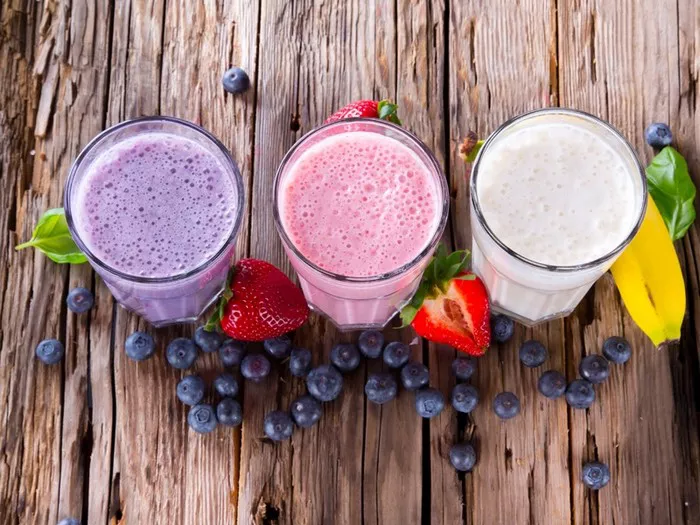Pregnancy is a transformative and delicate period in a woman’s life, marked by numerous physiological changes that support the growth and development of a new life. The first trimester, spanning from conception to the end of the 13th week, is a critical phase where the foundation for a healthy pregnancy is laid. Proper nutrition, including essential vitamins, plays a pivotal role in supporting fetal development and maintaining maternal well-being. In this comprehensive guide, we will explore the key vitamins crucial during the first trimester, shedding light on their importance and dietary sources.
I. The Foundations of a Healthy Pregnancy
Prenatal Vitamins: A Comprehensive Approach
One of the first steps towards ensuring a healthy first trimester is the initiation of prenatal vitamins. These specialized supplements are tailored to meet the increased nutritional demands of pregnancy. A typical prenatal vitamin includes a combination of essential vitamins and minerals crucial for fetal development, such as folic acid, iron, calcium, and vitamin D.
II. Folic Acid: The Guardian of Neural Tube Development
A. Significance in the First Trimester
Folic acid, a B-vitamin, is a paramount nutrient during the first trimester. Its primary role lies in preventing neural tube defects, which form within the first 28 days of pregnancy – often before a woman is aware she is pregnant. Adequate folic acid intake significantly reduces the risk of serious birth defects of the brain and spine.
B. Recommended Intake and Dietary Sources
Healthcare professionals typically recommend 400 micrograms (mcg) of folic acid daily during the first trimester. Good dietary sources include leafy green vegetables, fortified cereals, legumes, and supplements prescribed by healthcare providers.
III. Iron: Oxygen Transport for Maternal and Fetal Vitality
A. Iron’s Crucial Role
Iron is an indispensable mineral in pregnancy, especially during the first trimester, as it supports the increased blood volume necessary for fetal oxygen transport. Iron deficiency can lead to anemia, causing fatigue and compromising the well-being of both mother and baby.
B. Ensuring Adequate Iron Intake
The recommended daily intake of iron during pregnancy is 27 milligrams. Dietary sources rich in iron include lean meats, poultry, fish, fortified cereals, and legumes. Iron supplements may be prescribed if dietary intake alone is insufficient.
IV. Vitamin D: Skeletal Health and Immune Support
A. Importance in Fetal Skeletal Development
Vitamin D plays a pivotal role in the absorption of calcium, crucial for the development of the fetal skeleton and teeth. Additionally, adequate vitamin D levels contribute to maternal immune system function.
B. Sunlight Exposure and Dietary Sources
While sunlight exposure stimulates vitamin D synthesis in the skin, dietary sources such as fortified dairy products, fatty fish, and vitamin D supplements are essential during pregnancy. Healthcare providers may recommend 600 IU (International Units) daily.
V. Calcium: Building Strong Bones and Teeth
A. Supporting Fetal Skeletal Growth
Calcium is vital for the development of the baby’s bones and teeth during the first trimester. It also aids in blood clotting, muscle function, and nerve transmission.
B. Meeting Calcium Requirements
Pregnant women are advised to consume 1,000 milligrams of calcium daily. Dairy products, leafy green vegetables, fortified plant milk, and supplements are excellent sources to ensure optimal calcium intake.
VI. Vitamin C: Enhancing Iron Absorption and Immunity
A. Synergy with Iron Absorption
Vitamin C plays a dual role during pregnancy – it enhances the absorption of non-heme iron (found in plant-based foods) and contributes to the synthesis of collagen, a structural protein essential for the baby’s growth.
B. Dietary Choices and Recommended Intake
Including vitamin C-rich foods such as citrus fruits, strawberries, bell peppers, and broccoli in the diet is crucial. The recommended daily intake of vitamin C for pregnant women is 85 milligrams.
VII. Vitamin B6: Mitigating Nausea and Supporting Brain Development
A. Alleviating Morning Sickness
Vitamin B6, also known as pyridoxine, has been linked to reducing nausea and vomiting during pregnancy, commonly known as morning sickness. This can significantly improve the quality of life for expecting mothers in the first trimester.
B. Neurotransmitter Synthesis for Fetal Brain Health
Vitamin B6 is vital for the synthesis of neurotransmitters in the fetal brain, contributing to the development of the nervous system. The recommended intake for pregnant women is 1.9 milligrams per day.
VIII. Omega-3 Fatty Acids: Brain and Vision Development
A. DHA and EPA for Fetal Brain Health
Omega-3 fatty acids, specifically docosahexaenoic acid (DHA) and eicosapentaenoic acid (EPA), are crucial for the development of the baby’s brain and vision during the first trimester.
B. Dietary Sources and Supplementation
Fatty fish like salmon and trout, flaxseeds, chia seeds, and walnuts are excellent dietary sources of omega-3 fatty acids. In some cases, healthcare providers may recommend omega-3 supplements to ensure adequate intake.
IX. Conclusion: Nurturing a Healthy Beginning
As expectant mothers navigate the complexities of the first trimester, prioritizing proper nutrition becomes paramount for both maternal and fetal well-being. The judicious incorporation of essential vitamins, including folic acid, iron, vitamin D, calcium, vitamin C, vitamin B6, and omega-3 fatty acids, forms the cornerstone of a healthy and thriving pregnancy.
By understanding the significance of each vitamin, adhering to recommended daily intakes, and consulting healthcare professionals for personalized guidance, women can embark on this transformative journey with confidence. Nourishing the body with the right nutrients lays a robust foundation for fetal development and sets the stage for a healthy pregnancy and the birth of a vibrant, thriving child.
[inline_related_posts title=”You Might Be Interested In” title_align=”left” style=”list” number=”6″ align=”none” ids=”5882,5880,5878″ by=”categories” orderby=”rand” order=”DESC” hide_thumb=”no” thumb_right=”no” views=”no” date=”yes” grid_columns=”2″ post_type=”” tax=””]

































